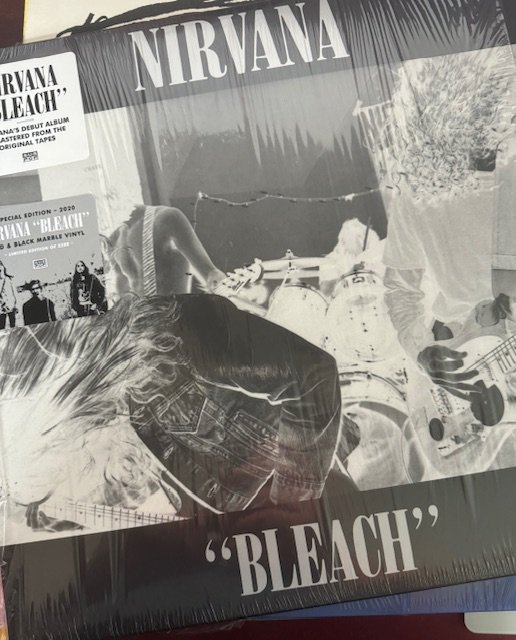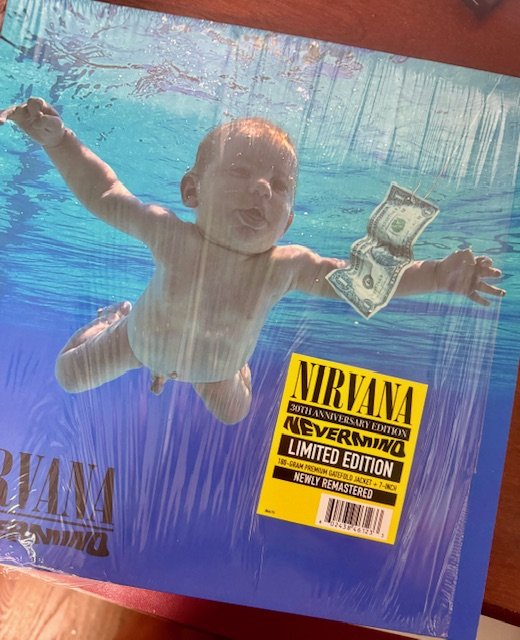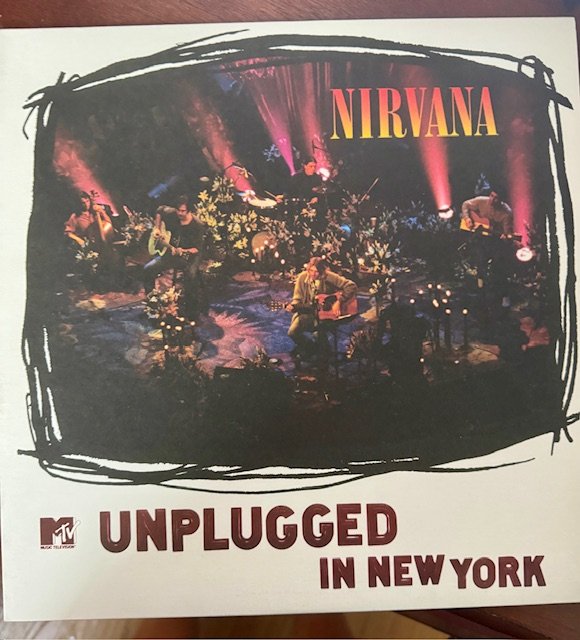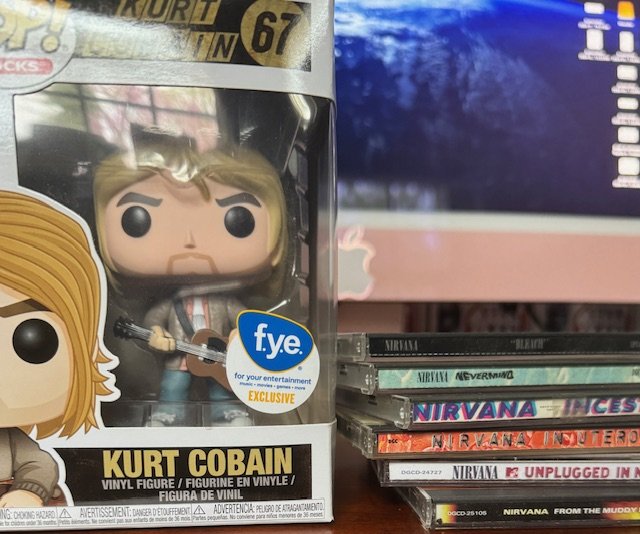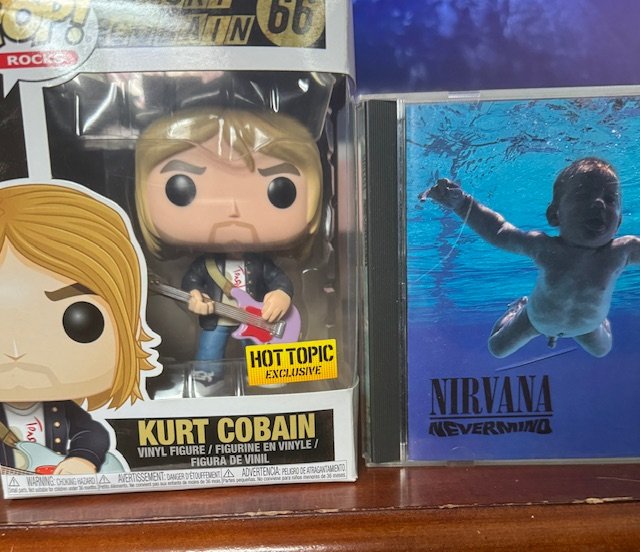Oh, well whatever never mind. Reflecting on the deaths of Raymond Wesley Richmond and Kurt Cobain
Oh, well whatever never mind. Reflecting on the deaths of Raymond Wesley Richmond and Kurt Cobain
Early in the morning on April 5, 1990, my stepbrother walked into my room. He had grim news to deliver, but somehow I already knew. Before he said a word, I started sobbing. Then he informed me that my father had passed away the previous evening. I’m not sure how I knew, but that feeling, that specific emotion, that intense grief is seared into my memory. I remember it has clearly as I remember anything.
I was just 16 years old when I lost my dad. Raymond Wesley Richmond was a good man. While not my biological father, he was my dad, and I loved him fiercely. The evening before he died, I went out to hang out with some friends. We went to the mall, hung out at the record stores, grabbed some McDonald’s, and smoked some weed. Typical light suburban teenage debauchery. I returned home and headed to bed. As I went to my room, my dad was also headed upstairs to go to bed. He said to me, “Getting a little big for your britches?” I wasn’t entirely sure what he meant. “you left tonight without asking me or even saying goodbye.” “Oh,” I replied. “I told mom I was going”. He paused for a moment, holding his ever-present crossword puzzle in one hand over his bifocals, considering what I had said. I can see him standing there, clear as day. “Well, Good night,” he said. “Night, dad” I replied. Then we both paused for a moment. I stood there, suddenly, feeling incredibly guilty. We looked at each other again. “I love you, Richie.” my dad said. “ I love you too, Pop.” I replied. It was a surreal moment. We said these things to each other, thousands of times, but this was the last time and I swear to God it felt like we knew.
My father‘s death impacted me greatly and changed the trajectory of my life. He adopted me when I was 4 years old. My adopted mother Joanne died. When I was five for the next several years it was just me and my dad kind of against the world.
My dad worked in a factory as a journeyman pressman at US Playing Card. I was the definition of an 80s latchkey kid. My dad worked second shift much of my childhood which I was on my own but when he was present, he was intentionally present. We went to the movies. We had dinner out. We got donuts on Saturday morning. He did the best he could. He rarely showed his emotion, but I knew that he loved me. I only recall seeing him ever cry once, and that was after my grandmother died. He called to tell one of his brothers and broke down crying just for a few moments. I recall this moment vividly as well, because it was the only time I’d ever seen him cry.
I was rudderless after my father passed away. I didn’t have a particularly close relationship with my stepmother, and I was a dumb teenager. My friends became my family and I soaked my grief in chaos. I partied too much and studied too little. I was loud, brash and stupid. I moved out of my house on my 18th birthday and continued my chaotic, directionless lifestyle.
The way I grew up and the impact of my father‘s death primed me to be the typical angsty Gen X stereotype. A little over a year after my father died, I found a new father figure in a musician from Washington State.
In 1991 I was mostly into metal music. I had heard a song by Nirvana on 120 Minutes and decided to pick up their sophomore record. Nevermind. Legend has it that I picked the CD up at Camelot music in Eastgate before a Queensrÿche concert at the old Cincinnati Gardens. It drips with irony, doesn’t it? my friend Anthony and I listen to Nevermind in the parking lot before the concert. It changed everything for me. This music was unlike anything I had heard before or was into at the time. Nirvana changed my attitude. My fashion sensibility, my direction in life. Music became incredibly important to me. Importantly, it became an outlet for me to navigate my emotions, particularly the grief around my father’s death. Having an outlet to deal with my emotions allowed me to improve my mental stability and mental health. Sure , There were still plenty of issues for me to deal with but I have something that made me feel good.
It was never implicitly stated I knew that my father wanted a “better” life for me than what he had. For many parents of that era that just meant they didn’t want their kids to grow up and work in a factory. Not that working in a factory isn’t an important or valuable career. I just think my dad realized he didn’t want a life for me where I was working late nights and not spending time with a family if I decided to have one.
I worked my way through college, spending what little disposable income I had on the soundtrack for my 20s, a steady diet of alternatives, music, and compact discs I obtained, building an impressive CD library. Music was always on whether it was in the car, the apartment or in a host of concerts. I immersed myself in music. Nirvana was the gateway band to alternative music for me and we’re an omnipresent part of the soundtrack of my life. Nevermind is probably one of the records I’ve listened to more than any other second to Appetite for Destruction. Back and discovered bleach. I bought it in utero on the day of release and watched Unplugged in New York countless times.
I specifically remember coming home from college 30 years ago, turning on the television and hearing Kurt Louder deliver the news about Kurt Cobain’s death. I obviously didn’t know Kurt, but his music and words had had a significant impact on my life. I collapsed on the spot and started sobbing uncontrollably. Seems silly to have such an extreme reaction to the death of a celebrity I didn’t know it had only been in my of knowledge for a few years. Of course, looking back on it now. I know this reaction was a culmination of the grief I felt from my father‘s death four years earlier, My unresolved feelings about being abandoned by my biological parents, my reaction to the physical and mental abuse I had received by them before I was adopted, and probably every other sadness and anxiety I felt in my short life. Yes, I was sad that the voice of our generation was gone and seemingly by his own hand, but I know my intense reaction was my way of finally dealing with and releasing emotions that I had had for years. That emotional release made me look at life differently. I knew I wanted to finish school. I knew I wanted to have direction. I knew I wanted to stability. it would still take me several years to find that, but I finally had some resolution to the grief and anxiety that filled my life.
I still deal with a lot of emotion. I still have a lot of grief, but I have an awesome family now and I’ve had some tragedy this past year. I have ways of dealing with my emotions and coping mechanisms that work. One of those, of course, is still music. And the music of Kurt Cobain still resonates with me as strongly as it did 30 years ago it’s a shame that we lost Kurt, but it seems like the perfect end to his story. We still have his music and we still have his words and of course, I still have the memories the positive memories of my dad, the positive memories of finding Kurt music, and of course significant memories of the moments I found out we’ve lost them both. It’s hard to believe that it’s been 30 years since we lost Kurt and 34 since I lost my dad. I’ve lived many more years without them. I had them, but their impact on my life resonates still.
“Oh well. Whatever. Never mind.”


